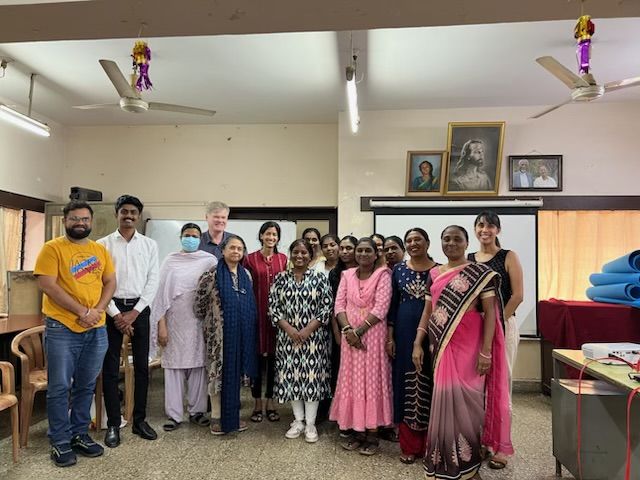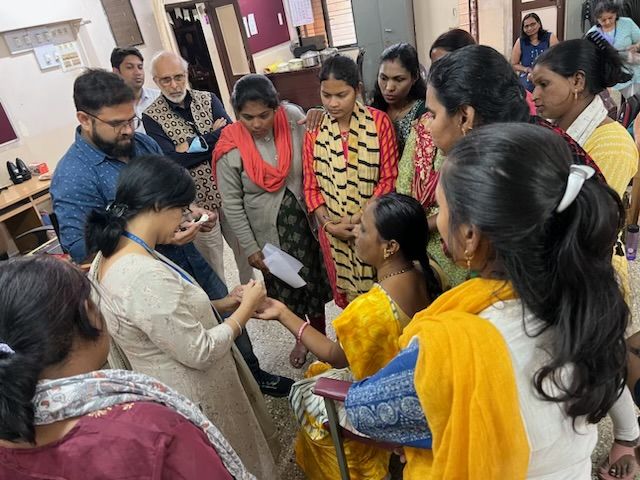Drs. Jyothi Mathad & Radhika Sundararajan awarded NIH R01 to improve postpartum diabetes screening in India's urban slums
Dr. Jyoti Mathad, Associate Professor of Medicine and Dr. Radhika Sundararajan, Assistant Professor of Emergency Medicine at Weill Cornell Medicine were awarded a National Institutes of Health R01 grant to lead an innovative implementation science study aimed at improving postpartum diabetes screening in India's urban slums. This research, crucial in the fight against the growing diabetes epidemic, focuses on the critical need for early detection of Type 2 diabetes (T2DM) in women who have experienced gestational diabetes (GDM).

By 2045, most of the new cases of diabetes will occur in low- and middle- income countries (LMIC) like India. However, half of those affected remain undiagnosed. This study, in collaboration with the Deep Griha Society and King Edward Memorial Hospital Research Center, targets the early detection of T2DM, particularly in women with GDM – a population with a high risk for progression of T2DM. The initiative's urgency is underpinned by the fact that cardiovascular diseases, a potential sequel of untreated diabetes, are the leading cause of death among Indian women.
The study will implement a hybrid type II effectiveness-implementation cluster randomized trial to evaluate if community health workers (CHW) can improve postpartum T2DM screening in the urban slums of Pune, India. Pregnant women will be screened for GDM, in the communities being randomized into two groups for postpartum T2DM screening: the CHW-delivered home-based testing arm offering in-home WHO-recommended oral glucose tolerance tests, and the referral arm for clinic-based screening.

A key aspect of this study is the involvement CHW, who are expected to boost postpartum T2DM screening uptake. Additionally, by employing a mixed-methods approach, the study will also assess the implementation of CHW-delivered services through qualitative and quantitative data from participants, CHWs, clinical staff, and Ministry of Health officials.
This pioneering study is the first of its kind to evaluate if trained CHW can enhance postpartum T2DM screening in Indian urban slums. Its outcomes promise not only to improve screening uptake but also to identify high-risk groups and potentially forge new pathways for disease screening in low- and middle-income countries.
Article by Nao Haba
Weill Cornell Medicine Center for Global Health
Center for Global Health
420 East 70th Street, 4th Floor, Suite LH-455
New York, NY 10021
Phone: (646) 962-8140
Fax: (646) 962-0285

